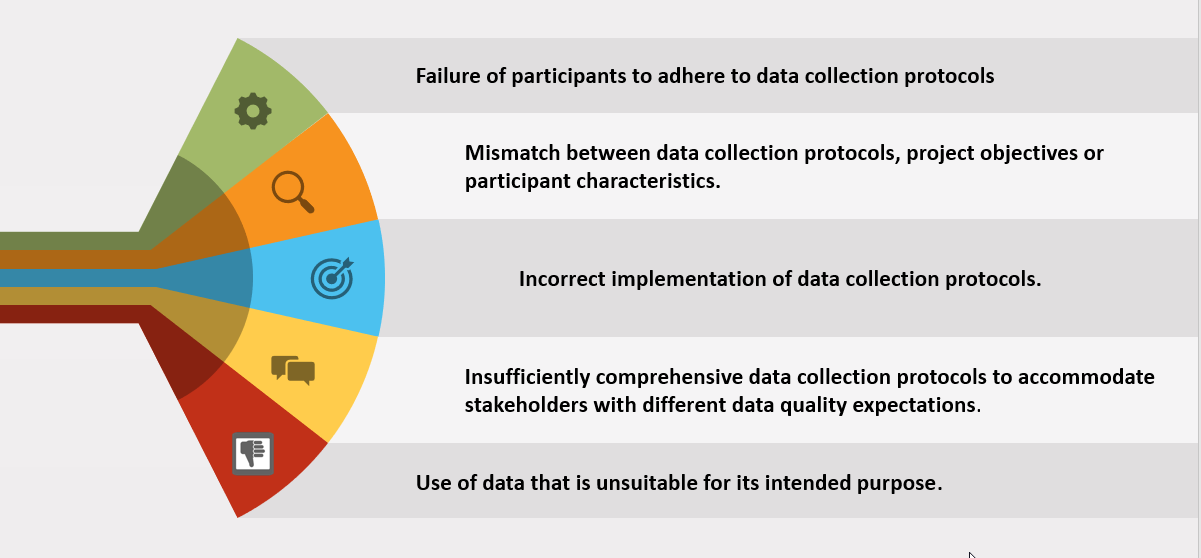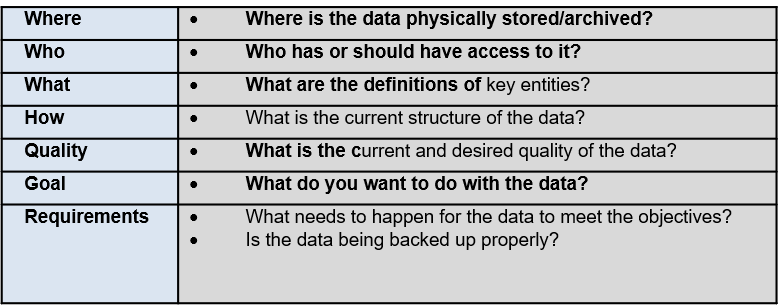Step 8: Definition of data quality issues for citizen science data
Citizen science programmes aim to meet the same standards of credibility as academic science, but usually work in a different context, for example, training and managing large numbers of volunteers with limited resources. In the realm of citizen science, different stakeholders, including scientists, funders, regulators, policymakers and the public, often have different and sometimes conflicting expectations about the usefulness of citizen-generated data. To cultivate a coherent and effective strategy for ensuring data quality, it is crucial to involve all participants in citizen science initiatives. This involvement allows them to collaboratively establish data quality standards and openly communicate their expectations of data quality levels.
Good training of participants on possible errors in data collection is the first step in raising awareness of data quality. Data quality challenges in citizen science projects include:

However, also in real science the concept of data quality varies across scientific disciplines, each with different conventions that dictate acceptable measures or levels of data quality. In particular, numerous scientific fields collect similar data using different methodologies. This inherent diversity precludes the feasibility of a universal, one-size-fits-all approach to data quality. Quality assurance (QA) and quality control (QC) are essential processes for ensuring the accuracy, reliability and validity of data. These rou-tines help to identify and address errors, inconsistencies and problems in data collection, storage and analysis. A combination of standardized protocols, automated checks, manual review and stakeholder involvement is usually the most effective approach to ensuring data quality.
Important points to be discussed are:

Other question arise concerning data quality, FAIR Principles, data governance and data scope:
| Increase data quality |
• Do you plan comprehensive training and education to enhance the quality of data collected? • Do you provide standardized protocols? • What quality control mechanisms do you use to detect and correct errors in citizen science data? |
| FAIR Principles | • How do you ensure compliance with FAIR? |
| Data Governance |
• How will you ensure sustainable data collection beyond one-off initiatives to support ongoing data collection processes? • What ethical and legal considerations should be prioritized in your project, particularly with regard to transparency, informed consent and data ownership? • What measures are you taking to protect sensitive data in your project from unauthorized access, breaches and misuse, while ensuring compliance with relevant regulations and privacy laws? • How do you implement effective data management practices to ensure compliance with data governance policies and standards throughout the data lifecycle? • What strategies do you use to maintain data quality, particularly to address challenges such as sensor quality, external influences, and ensuring accurate data interpretation? |
| Data Scope |
• How can traditional data boundaries be effectively extended to incorporate citizens' perceptions and experiences, thereby expanding spatial, temporal and thematic coverage? • How to ensure that citizen science data are 'fit for purpose', balancing granularity and managea-ble data processing, while aligning with monitoring objectives? • What strategies can be implemented to improve the representativeness of citizen science data, emphasizing inclusivity to reduce bias and ensure diverse participation? |
